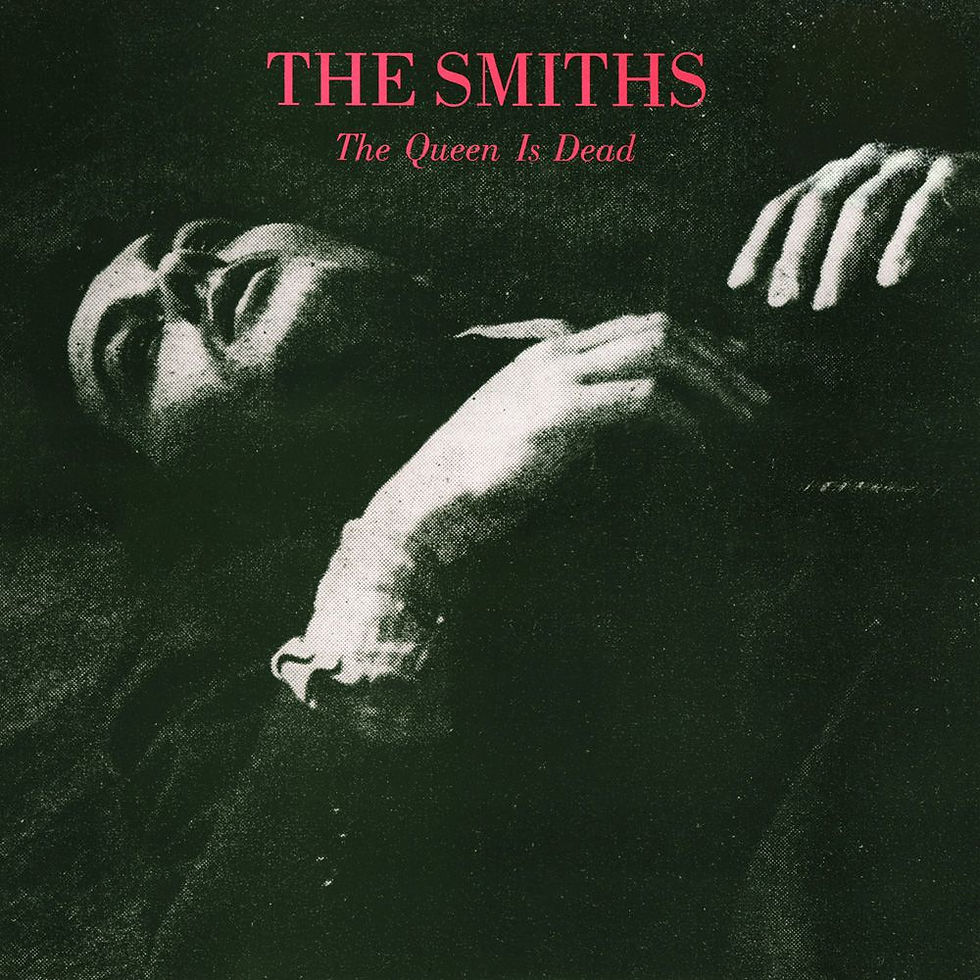Thank Thatcher for Burchill? The rise and rise of identity politics (18 January 2013)
- floyd132
- Sep 7, 2022
- 5 min read
‘No man is an island,’ wrote John Donne in 1624,
Entire of itself.
Each is a piece of the continent,
A part of the main.
Donne seemed to be indicating that we are by nature social beings who naturally seek the company of others, and that without company we are somehow diminished. By the 1970s, this view had lost much of its traction; for a new generation it was every man for themselves, prompting Margaret Thatcher to comment,
(People) are casting their problems on society and who is society? There is no such thing! There are individual men and women and there are families and no government can do anything except through people and people look to themselves first.
The roots of this view are found in the individualism that arose in response not only in response to the massive communitarian ideologies of the middle of the twentieth centuries that massively failed but also, to a certain extent, in reaction to that previous generation whose general purpose seemed to be sustaining global conflict (Korea, Vietnam, Suez, Malaysia etc). If society is good only for starting wars then why sign up?
But even then, society never went away, a fact acknowledged by Thatcher later in the same interview,
There is no such thing as society (just in case you missed it first time around). There is living tapestry of men and women and people and the beauty of that tapestry and the quality of our lives will depend upon how much each of us is prepared to take responsibility for ourselves and each of us prepared to turn round and help by our own efforts those who are unfortunate.
Hang on a minute – what is a living tapestry of men and women if it is not a society?
Perhaps the answer is to be found between the lines of the various exchanges between Julie Burchill, Suzanne Moore and what I have come to understand to be the ‘trans-community’. It seems that no man (or woman, natural or otherwise) is allowed to be an island but instead must be a member of a community. And so it continues: Nadia Eweida feels it necessary to wear a crucifix to work, a decision upheld by the courts. Apparently, ‘It is important to wear it to express my faith so that other people will know that Jesus loves them.’ Don’t try to rationalise this statement. I’ve tried and failed; maybe you will succeed but if so that sort of brainpower (like those phenomenally hard working scientists who slave away at the Laboratoire Garnier, Paris, discovering ever more inventive ways to coat your hair in plastic because you’re worth that but not a cure for malaria etc) needs to be put to more constructive and better use.
By wearing a cross Nadia is expressing her membership of the Christian community, presumably the same community that suggests the world will become a better place if you put a fish sticker on the back of your car.
But I’m getting sidetracked. My point was supposed to be the more we focus on our position as a member of a specific community, the less we need to worry about our role in a wider society – and this wider society is in terminal decline. Some aspects of this society remain, like phantom limbs, somehow real but somehow not there either: consider the way in which ‘society’ rallies round in the aftermath of accidents to cloak railings and lampposts with flowers – as often as not faux emotions for a faux society, a desperate wish to be part of a wider social fabric that disintegrated a generation ago. This phenomenon is particularly acute in big urban centres where people will lay down flowers for people they never met and yet where the people three doors down are complete strangers.
Back to communities. This is not to say that ‘communitarianism’ is without merit – where communities are marginalised or excluded from society then there is a need to organise and press for integration – and we can think here of the work the of the civil rights movement and LGBT community – but this should not extend to pressing for special rights within that society. Affirmative action is a means to an end, not an end in itself, something recognised by Harry H Blackmun when he wrote in 1978 that “In order to get beyond racism, we must first take account of race. There is no other way.” He was right and the fights against racism and other forms of prejudice are far from over. However, those fights were/are about integration and the removal of institutional and individual prejudice rather than intrinsic special measures. The more groups seek to identify themselves by maintaining separate identifies and agenda from the rest of society the less integrated they necessarily will be and the more likely it becomes that wider society descends into tribalism. Press for rights by all means but why press for self-inflicted apartheid or ghettoization?
Which rather begs the question: do certain communities deserve special measures or special rights? What about the LGBT community? It’s not really for me to answer but I suspect that primary objective is to be treated like anybody else. Certainly, the gay people I know are not gay friends but simply friends and that is surely what is wanted. I don’t have any friends from the trans-sexual community, none I know of anyway, but the lingering concern is that this argument is less about pushing back the frontiers of prejudice than attention seeking on the part of certain aspects of that community. One of the problems of any group is that they tend to develop hierarchies and without effective democratic structures in place there is no way to hold leaders or spokespeople – usually self-appointed – to account. Now Suzanne Moore’s initial comments may have been a bit crass but it is hard to reconcile the scale of the furore with the scale of the offence. In terms of Burchill, her piece was no worse than every other bile-fuelled splenetic she has ever condemned to a page and so no better or worse for that; as for offence, above and beyond quality control there’s not much to say other than that it is Burchill so you can hardly claim to be surprised.
If we are to be generous, we could claim that the rush to claim institutional offence is a noble but misguided manifestation of Blackmun’s principle of affirmative action; we could, on the other hand, be more sceptical and argue that the ego of these people is merely serving to reinforce differentiation and so doing their cause no end of harm.
As for the crucifix – well, as someone once pointed out if Christ is ever going to return the cross is probably the very last thing he would want to see but if someone wants to wear one then fine, as long as it is not dangling in an open wound or expressly forbidden in a contract they signed freely when they took the job. Don’t, however, say you’re doing it for my benefit. Elsewhere, it’s reassuring that religion (Christianity at any rate) is not a license for prejudice or criminality, so that’s one for the secularists, though quite how Gary McFarlane and Lillian Ladele can reconcile their positions with a state-sponsored entity that can employ non-practising homosexuals (again, good luck deconstructing that) but FOR GOD’S SAKE NO WOMEN BISHOPS will be interesting to hear. I don’t suppose one should necessarily expect consistency from religion: the idea that Christians are being persecuted when they still get 26 bishops into the House of Lords, exercise control of the bulk of primary education, enjoy enviable access to the BBC and first refusal on Thought for the Day is laughable.
Coming back to Donne; he understood that society is not about tribes, it’s about everyone.
Each man's death diminishes me,
For I am involved in mankind.
I wonder if he would have liked New Jack City:
Possibly.
Therefore, send not to know
For whom the bell tolls,
It tolls for thee.


.png)



Comments